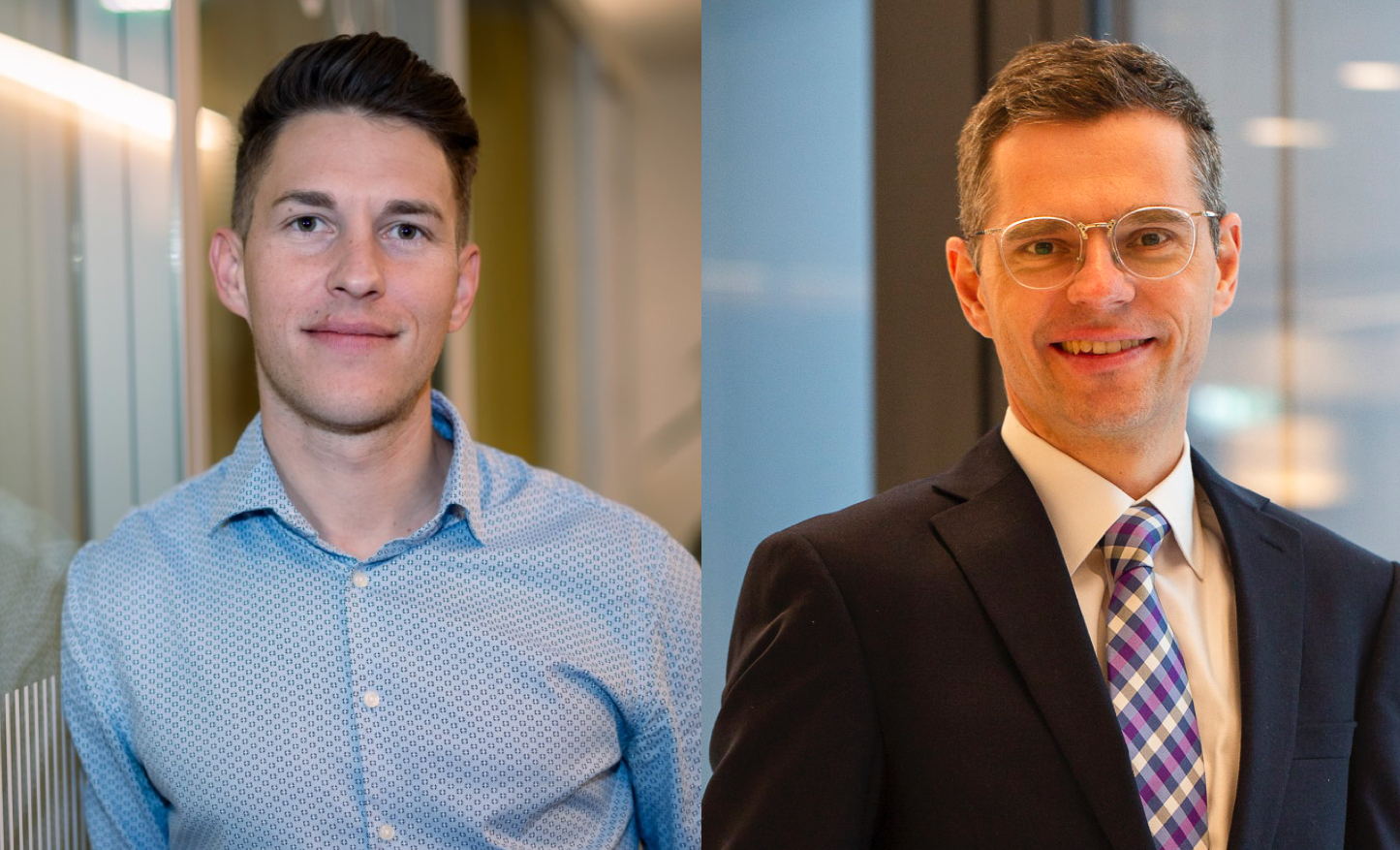
“Startups must demonstrate the added value they bring. The more evidence, the stronger their case is”
Peter and Fabian
Inspiring impact
Interview with Peter Schliesselberger and Fabian Kesicki
Meet Peter and Fabian, the two executive leaders who drive Wien Energie's corporate innovation and development agenda by partnering with startups, the public sector, and other corporations via the Climate Lab.
Peter Schliesselberger
Head of Corporate Innovation - Wien Energie
Fabian Kesicki
Head of Corporate Development - Wien Energie

Peter Schliesselberger
Head of Corporate Innovation Wien Energie

Fabian Kesicki
Head of Corporate Development Wien Energie
Share this interview on
About Peter Schliesselberger and Fabian Kesicki
Peter is an experienced innovation leader with a strong track record in advancing corporate innovation strategies and fostering collaborative environments. He has spearheaded the development of Wien Energie’s innovation strategy, established a thriving innovation community, and implemented structured foresight management. His expertise includes leading corporate innovation programs such as intrapreneurship and startup collaboration.
Fabian is a seasoned energy sector professional with 16 years of experience in corporate strategy, business development, innovation, and market analysis across the UK, France, Germany, and Austria. Leading corporate strategy, innovation, digitalization, and sustainability at Austria’s largest regional utility, Wien Energie. Fabian has a strong track record of collaborating with startups, having developed and implemented an innovation strategy that includes internal and external accelerators and incubators.
The duo founded and developed the Climate Lab together with other partners like the Climate & Energy Fund, Impact Hub and EIT Climate-KIC. The Climate Lab is an ecosystem for climate innovations that enables established companies and startups to collaborate on sustainable climate solutions.
As Corporate Development and Innovation leaders, can you describe how Wien Energie typically collaborates with startups to fuel innovation within the energy sector?
The starting point for our startup collaborations is the identification of clearly defined challenges within our business units that align with our strategic targets. Each year, we pinpoint approximately three of these challenges and then seek out suitable startups across Europe to address them.
What strategies do you employ to identify potential startup partners that align with Wien Energie’s vision and goals?
We collaborate closely with an Innovation Ecosystem known as Climate Lab, which boasts an extensive network in the startup world and assists us in scouting for suitable companies. The selection process is guided by clear criteria, including track record, relevance to our challenge, feasibility, sustainability focus, and sales potential.
How does Wien Energie typically support startups during and after the integration process?
We support project teams in developing all the necessary content to facilitate decision-making for potential scaling, utilizing selective sparring with innovation methods and frameworks. On a formal level, we strive to design and standardize the necessary processes as efficiently as possible, including aspects such as the purchasing process and cooperation agreements.
Can you share a success story of a startup collaboration that had (or will have) a significant impact on your business?
There are numerous areas where we find cooperation with startups both necessary and beneficial. One example is the tracking of CO2 emissions along the supply chain. Significant investments will be required in the future to transform the energy system, which inevitably leads to resource use and CO2 emissions. We are partnering with a startup to minimize the carbon footprint during the planning process of major infrastructure projects by identifying potential design alternatives. Additionally, we are collaborating with startups to enhance the transparency of Scope 3 emissions by establishing a platform to track these emissions for our most important suppliers.
In your experience, what are the biggest challenges when aligning a startup’s technology or products with your company’s existing offerings?
The biggest hurdle is often the balance between maintaining our reputation and avoiding mistakes, which can conflict with a startup’s desire to experiment and gain experience. Finding a good balance is essential. Additionally, we’ve learned the importance of ensuring that a startup’s technology aligns with our existing technology landscape, particularly IT. This prevents scenarios where a highly interesting startup solution can only be implemented after significant changes to our support systems.
How do you typically structure partnerships with startups to ensure mutual benefits and sustained innovation?
Setting expectations is crucial. Based on our years of experience, we strive to clarify the expectations of both parties at the outset of any cooperation. We outline the resources each side will contribute, describe our processes, and highlight the mutual benefits of the collaboration. We have established a clear process with defined milestones and decision points. This process ensures commitment and ownership from the business unit to facilitate further scaling. Additionally, we have cooperation agreements in place to foster a common understanding of milestones, KPIs, and expected outcomes.
Could you discuss any programs or initiatives that you have established in the past to engage with startups more effectively?
Almost two years ago, we launched the Climate Lab in collaboration with other partners, driven by our conviction that collaborative innovation is essential to realizing our strategy. We created an ecosystem for climate innovation to advance initiatives that can be executed more quickly and effectively through partnerships. The Climate Lab also serves as a physical space in the office tower adjacent to our waste incineration plant, Spittelau, where startups are based and exchange is actively promoted.
How do you see the future of collaboration between large corporations and startups evolving in the next few years?
Collaborations between corporations and startups will be essential as technologies evolve more rapidly, industry boundaries blur, and customer needs change faster than ever. It’s crucial to identify the areas where cooperation is needed and where it aligns with our strategic goals. We believe that these collaborations will become increasingly professional, with startups understanding what they can expect from large corporations and corporations adapting to ensure successful partnerships.
What advice would you give startups looking to make themselves attractive partners for large organizations?
Startups must demonstrate the added value they bring, how their value proposition addresses a specific challenge, and how the collaboration could be organized. The more they can support their position with references and evidence, the stronger their case will be.
Author: Daniel Rongo
Founder at Industry Gap
Connect with me on LinkedIn